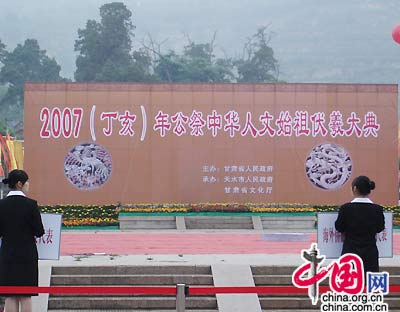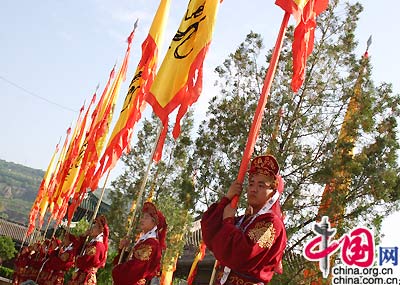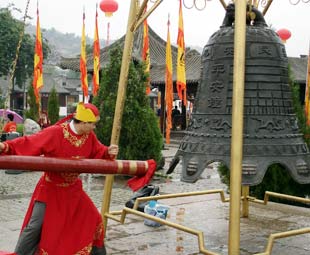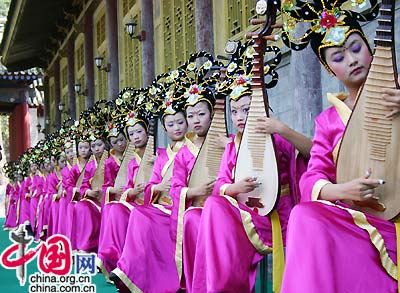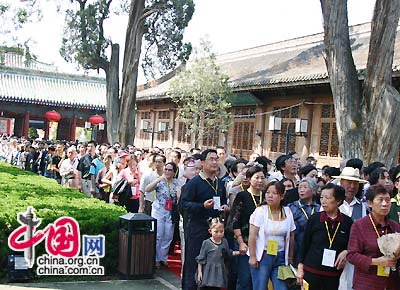| Tools: Save | Print | E-mail | Most Read |
| Gansu Honors Memory of Legendary Emperor Fuxi |
| Adjust font size: |
A crowd of thousands, comprising both foreign and Chinese faces, gathered in Tianshui, Gansu Province, yesterday to honor Fuxi, revered as one of the ancestors of the Chinese nation. Held outside the main gates of the 600-year-old Fuxi Temple, the ceremony was attended by Xu Shousheng, governor of Gansu Province, who personally read the funeral oration. This was the 19th Fuxi public memorial ceremony since their inception in 1988.
Tianshui, the birthplace of Fuxi, is considered a cradle of Chinese culture where such crucial skills as hunting, farming, fishing and the whole of Fuxi culture first blossomed in China. Based on the wealth of documentary records and archaeological discoveries uncovered, Fuxi culture is estimated to have originated over 8,000 years ago. According to documents dating back to pre-Qin times (before 248 BC) and historical books from the Han dynasty (206 BC-220AD), Fuxi was honored as forming the bloodline of five other emperors (the Yellow Emperor, Zhuanxu, Ku, Yao and Shun) and the head of three august ones (Fuxi, Nuwa and Shennong). Long admired as a vital region in China, Tianshui has had the good fortune of being the birthplace and dwelling of many forefathers of the Chinese nation represented today by Fuxi. Each year, thousands of Chinese flock to the city to honor the memories of their ancestors and hold ceremonies for Fuxi. Prior to Qin Shihuang (259-210 BC) who is credited with becoming China's first emperor by after uniting the country in 221 BC, ancient Chinese believed in an even older emperor who lived as much as six millennia before Qin. Fuxi was respected by tribes from near and far, as he taught them to weave fishing nets, feed animals and farm. The wise forebear also established a rudimentary type of social governance, laid down original marriage laws and composed his community's first music. But among all of Fuxi's accomplishments, that which Chinese lore holds in the highest esteem is the bagua, or the Eight Trigrams. The bagua is a fundamental ancient Chinese philosophical concept, generally depicted as an octagonal diagram with a trigram dominating each side.
(China.org.cn by staff reporter Li Xiaohua in Gansu, June 23, 2007) |
| Tools: Save | Print | E-mail | Most Read |
 |
| Related Stories |
|
